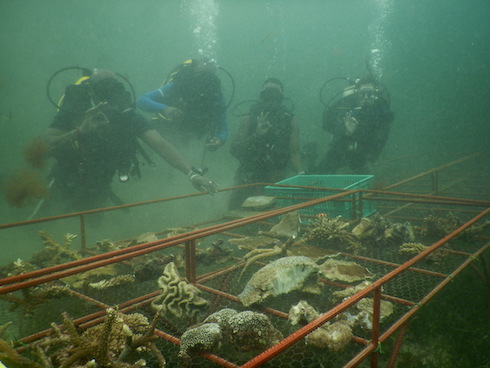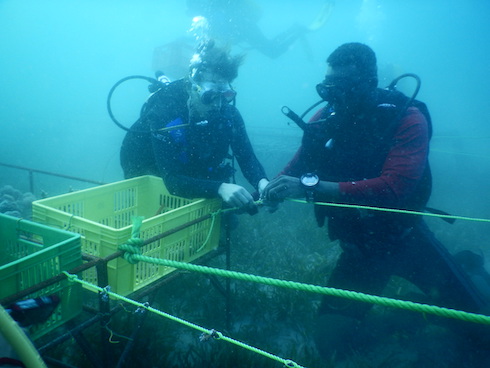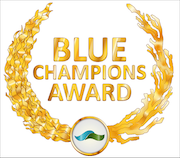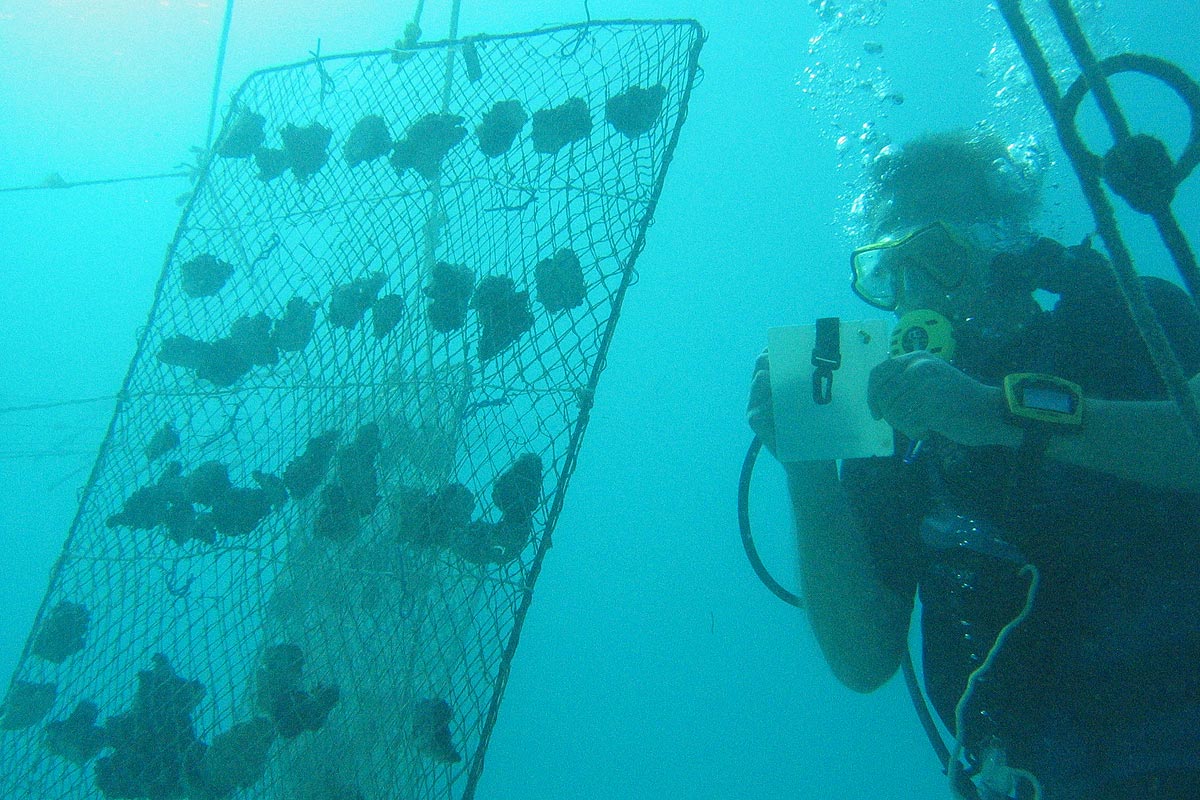Project Launch at Fish Eagle Point – New Coral Farm Established
20.03.2025
New Coral Farm at Fish Eagle Point near Boma, Subutuni – Project Launch for Reef Restoration with Local Team
In mid-March, we successfully launched a new coral restoration project in Boma, Subutuni together with our partner organization, Mwambao Coastal Community Network. Within just a few days, marinecultures.org, in collaboration with local partners and the Mwambao team, was able to set up the new coral farm. The project aims to regenerate damaged reefs in the Pemba Channel region while strengthening local knowledge and capacity in coral restoration.
Why Boma, Subutuni?
The bay near the eco-lodge Fish Eagle Point is an ecologically significant area with high biodiversity. Unfortunately, this region has been severely impacted in recent decades by destructive fishing methods and the global coral bleaching event in 2024. The new coral farm is part of a broader restoration strategy led by Mwambao and the local Beach Management Unit (BMU). Together, they are also working to establish sustainable resource use through no-take zones and alternative income opportunities for local fishers.
A Project by the Community – for the Community
At the heart of this project is collaboration with the local community. Two coral farmers from the region were trained at our base in Jambiani over a 10-day period and are now fully integrated into the project. All construction materials and infrastructure were sourced locally to support the regional economy.
As always, restoration efforts by marinecultures.org follow the strict guidelines and best practices of leading international networks such as the Coral Restoration Consortium and the Reef Resilience Network.
What has been done
A total of 40 coral tables were installed at depths of 6 to 8 meters, along with the creation of a rope nursery strung between the tables. Corals of Opportunity (COO) were collected, and the first coral tables and the rope nursery have already been populated.
The focus is on maintaining genetic diversity and encouraging natural coral reproduction. Monitoring visits by marinecultures.org are planned.
What is next
In the coming weeks, the farm will continue to be stocked with new corals. In coordination with Mwambao, the next steps will include establishing a long-term maintenance plan for the nursery.
About 6 to 9 months from now, the first phase of transplanting corals onto degraded reef structures in designated areas will begin.
We sincerely thank Mwambao, the local Beach Management Unit (BMU), and the Fish Eagle Point eco-lodge for their invaluable support and trust.





